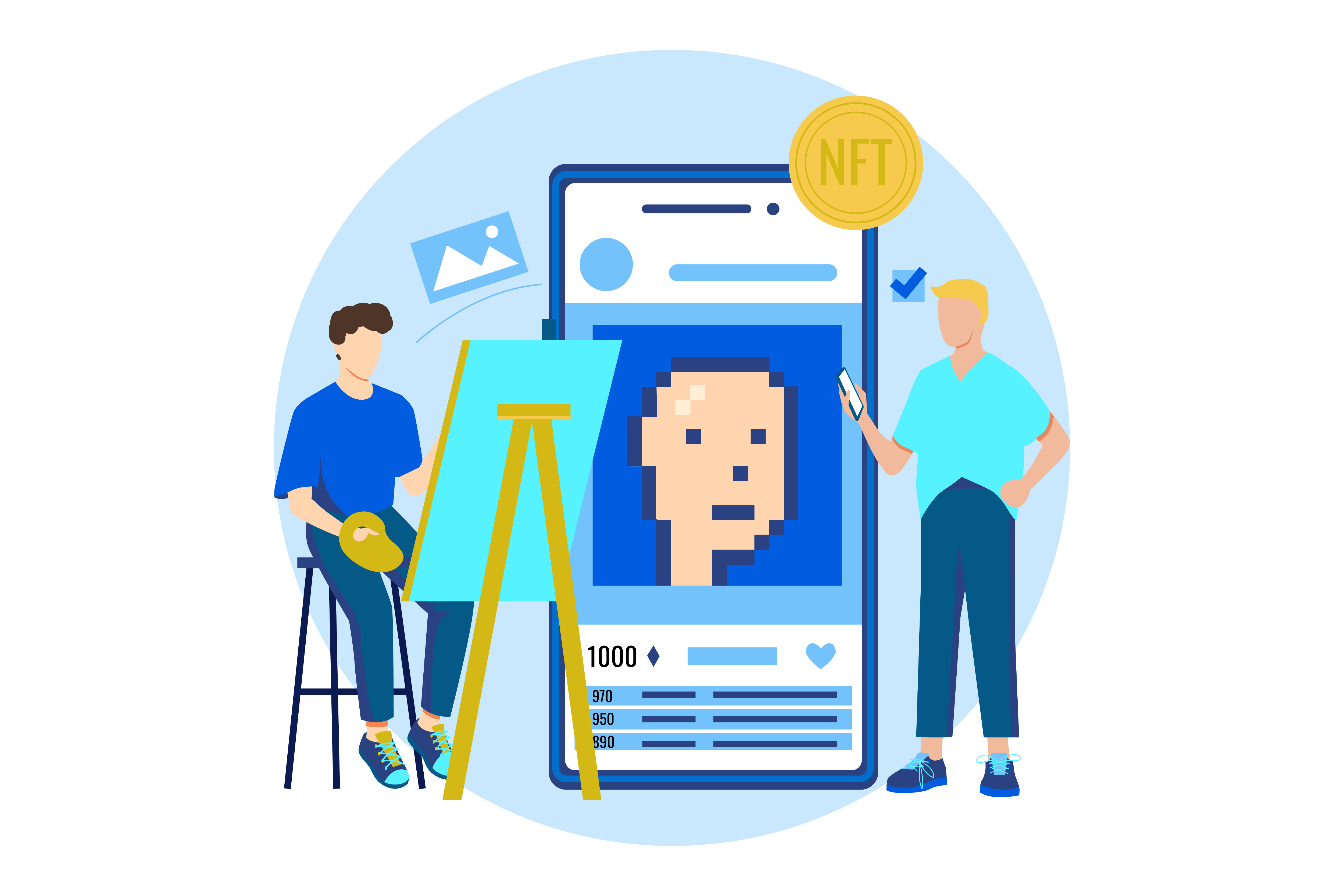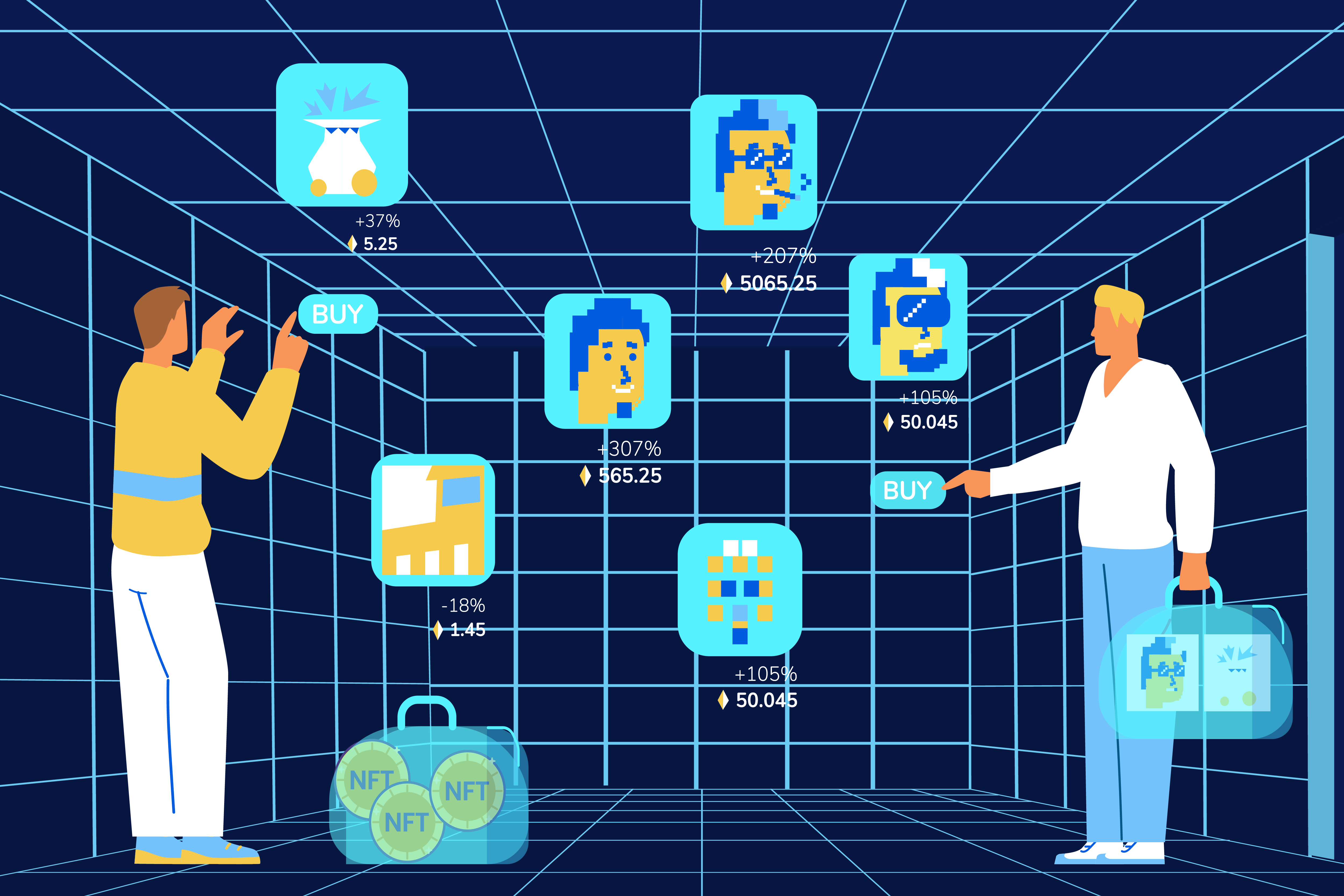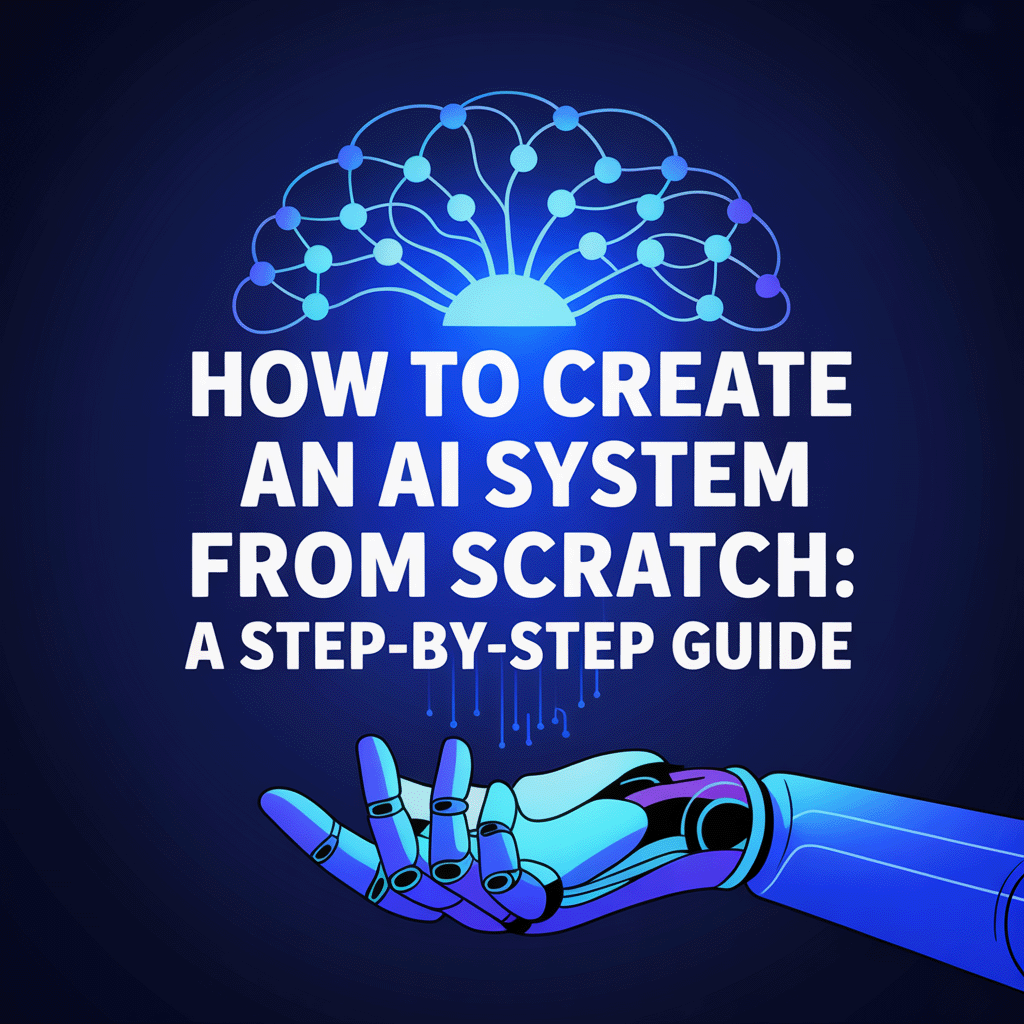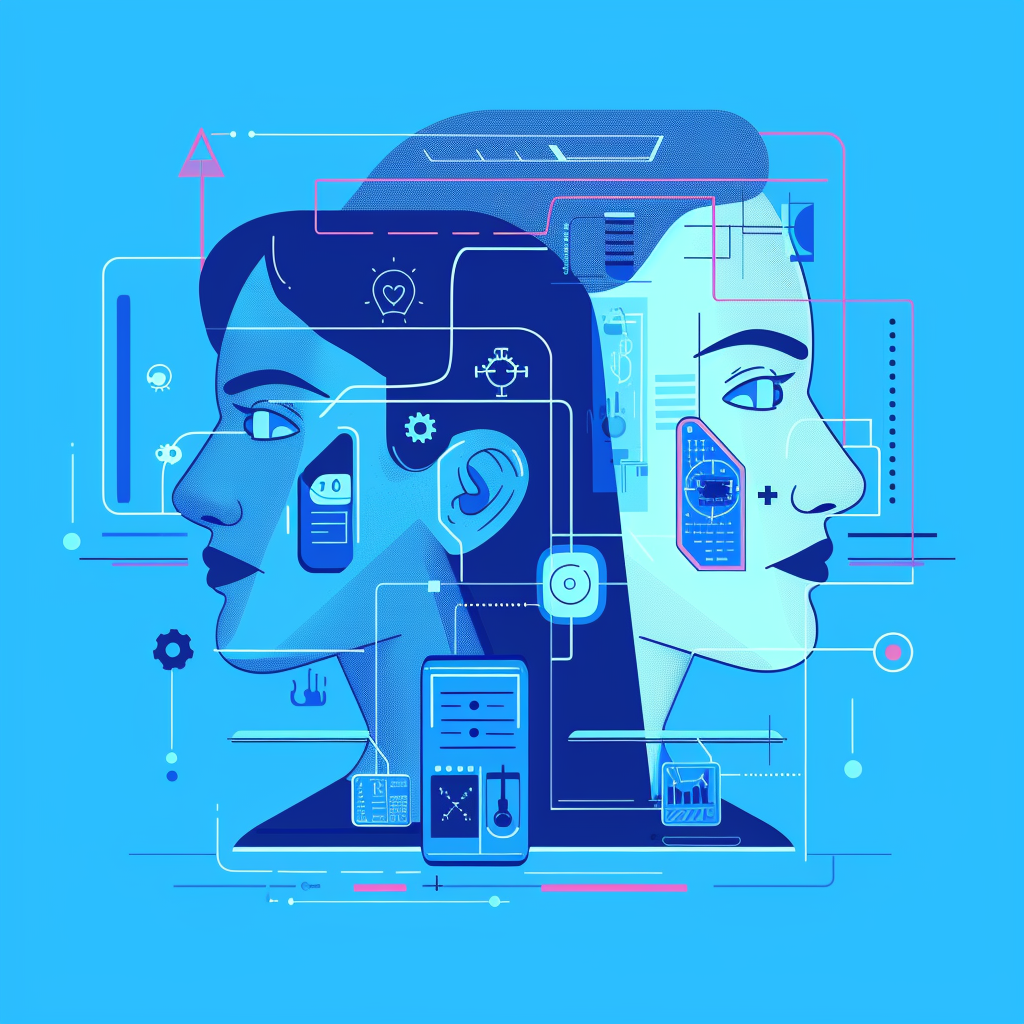Imagine a world where AI can diagnose diseases with superhuman accuracy, predict patient outcomes before they even occur, and personalize treatment plans for maximum effectiveness. This isn’t science fiction – it’s the exciting reality of machine learning in healthcare.
The human body is a complex machine, and traditional healthcare methods can sometimes struggle to keep pace. But machine learning, with its ability to analyze vast amounts of medical data and identify hidden patterns, is transforming the healthcare sector at an unprecedented rate. Studies have shown it can outperform human doctors in tasks like image analysis, risk prediction, and even drug discovery.
Ready to dive into the future of medicine? Let’s explore 7 fascinating applications of machine learning that are streamlining the healthcare sector and improving patient outcomes worldwide.
What are Artificial Intelligence and Machine Learning in Healthcare?

Before we move on to answering the question of how AI transforms healthcare, let’s find out what the technology is and review the fundamentals of machine learning for healthcare. Artificial intelligence is an advanced tool that allows human behavior to be simulated in a smart computer system, while machine learning is a subset of AI that allows machines to process health data automatically. Using algorithms, these technologies make it possible for systems to learn through growing data sets, improving their accuracy and performance.
The rising popularity of machine learning is leading to the technology being used across a variety of industries: Logistics, Finance, Manufacturing, Retail and Customer Service, Business, Cybersecurity, Genetics, Education, etc. According to Earth Web, 48% of companies are using machine learning. Today, there is a tendency to actively integrate this new technology into the medical field and its procedures to improve care delivery.
Healthcare widely adopts machine learning to process and analyze the massive amounts of data generated every day, using algorithms to find patterns and insights. This is a complicated and sometimes even impossible task for humans, but not for AI. Common use cases for machine learning in healthcare include automating medical billing, supporting decision-making and developing clinical practice guidelines.
Benefits of Applying AI in Healthcare
In this section, we’ll talk about the advantages of using AI in healthcare, as it has already proven to be groundbreaking for many industries, and this one is no exception.
There are numerous AI opportunities in healthcare: it can improve patient outcomes, reduce costs and make staff jobs easier. The benefits are particularly evident when it comes to diagnosing conditions or monitoring patients who are at high risk for developing certain conditions. But there are even more positive outcomes that AI and ML can bring to healthcare. Here are a few examples:

-
Enhanced Patient Experience
Thanks to the application of machine learning in healthcare, medical clients can get more personalized care, including reminders about upcoming appointments and prescriptions. AI can make this happen by linking multiple data sources together to build a complete picture of each individual patient’s health state and develop appropriate treatment recommendations. Focusing on patient experience and leveraging AI to provide personalized, proactive support improves satisfaction and outcomes.
-
Reduced Operational Costs
The healthcare industry spends billions of dollars each year on unnecessary tests, treatments and procedures due to human error or miscommunication between providers or patients. Medical machine learning can eliminate these mistakes by providing accurate results based on specific parameters set by physicians and patients.
This is especially true for people who require multiple tests or surgeries over time. An AI-powered system, for example, helps track all their health records in multiple locations, so patients do not have to start over each time they visit a new doctor or hospital. The result is that fewer services are duplicated, and fewer errors occur — ultimately saving money for both parties.
-
Improved Patient Outcomes
The use of AI and machine learning in healthcare can help identify patterns and tendencies in data that can help physicians make better diagnoses and treatment plans for patients. This can lead to better patient outcomes and lower costs by reducing unnecessary medications and hospitalizations.
By crunching data sets and analyzing trends in real time, AI can help physicians make better decisions about the best course of treatment for each patient based on their particular medical history and symptoms; ensuring that everyone receives appropriate medical care without delay.
-
Extended Access to Healthcare
AI systems can help patients reach their own medical data easily and quickly by providing secure access via the Internet or mobile devices. This allows people to get rapid answers to questions about their health without waiting for a doctor’s appointment or visiting the hospital. AI will help physicians expand their outreach by allowing them to consult patients remotely and perform virtual checkups.
-
Increased Staff Satisfaction
The use of AI and machine learning in healthcare can help reduce the burden on staff members by automating tedious tasks. That means specialists can focus on what they do best — providing high-quality care to their patients. When medical records become electronic and accessible via the cloud, physicians and other staff are able to access them from anywhere in the world. This means they spend less time on administrative tasks such as data entry, freeing more time for patient care or educational activities.
This improves morale among staff members, as they no longer have to spend time doing monotonous work that doesn’t require their expertise or skill set. In addition, AI also provides access to real-time data that can help reduce human errors and improve overall quality control within hospitals.
7 Use Cases for Machine Learning in Healthcare

From early disease prediction to better treatment outcomes — here’s how artificial Intelligence in the medical field makes a difference. No doubt, the healthcare industry‘s main problems are costs that are rapidly rising and burnout among employees. Increasing regulation means staff must spend more time interacting with the electronic health records (EHR) to process all the data they generate. However, AI automation in healthcare can take away tedious and resource-intensive tasks to free up employees for more important processes.
Over the years, data, analytics and innovation continue evolving to enable a better healthcare system. So to answer the question: “What is machine learning in healthcare?”, we’ve compiled a list of 7 successful use cases.
1. Virtual Nursing
Due to the high volume of patients, nurses often get overworked. In response to this obstacle is the examples of AI in healthcare — virtual nurses. These are computer-generated avatars that interact with patients in a human-like manner and provide personalized support to each of them. Nurses are designed to give quick, informative responses between doctor visits and are available 24/7.
For instance, Molly is a virtual nurse developed by Sense.ly. The software is a major step forward for telemedicine, enabling fast and effective interaction between patients and doctors at any time and any place. It uses voice recognition technology to collect medical data and remotely monitor health conditions. Molly collects patient information such as weight, body temperature and blood pressure, and helps book appointments with a doctor.
2. Medical Imaging
“Medical imaging” refers to certain procedures that help monitor the human body and detect and treat various diseases. Machine learning algorithms have already helped detect cancer tumors and predict leukemia recurrence rates by 90%. The technologies are better than human specialists at recognizing a broader range of conditions.
Via scanned images, AI and ML can detect microscopic deformities. This allows healthcare providers to make accurate diagnoses and suggest the right treatment. Imago Systems, Inc. is an excellent example of medical imaging. They’re developing a more structured image that can help identify abnormalities that may mean patients have certain diseases.
3. Robot-Assisted Surgery
Robots powered by AI and ML simplify surgical procedures by taking over tasks such as cutting and stitching. They’re able to do so with greater precision and accuracy and with minimal intrusion. Even in operations performed by the most skilled surgeons, there is always the possibility of tremors or accidental movements that lead to fatal consequences. To assist doctors and ensure positive surgical outcomes, it is vital to apply AI and robots in healthcare.
One of the most powerful AI robots for surgery is the Senhance Surgical System. This is a multi-armed system that is controlled remotely. Based on ML and deep learning models, this software allows surgeons to undergo simulation training and automatically adjust the camera view during operations.
4. Drug Discovery
During the Covid-19 outbreak, the benefits of AI in healthcare became apparent regarding vaccine development. Because this process is expensive, time-consuming and labor-intensive, the use of AI, ML and deep learning is proving to be effective tools for developing and testing new medications. By analyzing big data, these technologies facilitate and speed up the drug development process and help save costs.
A good example is the U.S. pharmaceutical and biotechnology company Pfizer, which is actively using IBM Watson to accelerate oncology research. This computer system helps healthcare organizations predict future outcomes and automate complex processes. This is capable of processing and analyzing 1 million medical evidence and 4 million patient records in a year, while a human can only read about 300 articles in the same time. Thanks to IBM Watson, Pfizer develops medicines more quickly based on previously obtained data about the active components in drugs and their effect on the organism, which is crucial for humanity, especially in times of epidemics.
5. Patient Data Analytics
AI in the medical field also enables institutions to analyze clinical data and provides insights on patients’ health. To properly capture the data, doctors create a specific list of relevant information to disclose and use machine learning technology. The ML software then requests answers from patients based on this list and makes it easier to collect relevant data, reduce the cost of care and use resources more efficiently.
Zakipoint is a company specializing in patient data analysis. It offers a system that displays all relevant health information on a dashboard to identify risks, provide tailored treatment programs and improve medical outcomes.
6. Disease Outbreak Prediction
Artificial neural networks can help health organizations collect data from around the world and use it to monitor and predict disease outbreaks. The recent outburst of Ebola in West Africa was a perfect example of how AI can help in healthcare. Researchers at Google used an artificial intelligence-based algorithm to predict a massive spike in Ebola cases in Liberia three months before the actual outbreak. Using the same algorithm, researchers were able to detect other potential breakouts, such as cholera and influenza, before they became epidemics.
7. Hospital Management Optimization
Other examples of artificial intelligence in healthcare include optimizing resources, managing much of the administrative work in hospitals, and analyzing administrative data. Machine learning algorithms impact the scheduling of staff based on their availability and workload — something that’s notoriously difficult for human managers to do because much attention and time are required.
How is AI used in hospitals? Well, they are integrated into health systems to manage patient flow and prevent overcrowding by quickly identifying which patients need to be treated first based on their symptoms. The algorithm could also determine if an emergency department needs additional staff or beds based on how busy it is at the moment and how many patients have been seen since the last shift change.
Unlocking the Potential: How to Implement AI and ML in Healthcare
Machine learning (ML) holds immense promise for revolutionizing healthcare, but translating potential into reality requires a strategic approach. Here are some key considerations for implementing AI and ML in the healthcare setting:
- Identify the Need: The first step is to identify a specific challenge or area where AI/ML can offer a clear benefit. Is it improving diagnostic accuracy? Streamlining administrative tasks? Focusing on a well-defined need ensures your AI implementation has a clear purpose and measurable goals.
- Data is King: Machine learning thrives on data. Ensure you have access to high-quality, relevant medical data to train your AI models. This may involve partnering with other healthcare institutions or anonymizing existing patient data while adhering to strict data privacy regulations (HIPAA compliance in the US).
- Building the Team: Implementing AI/ML successfully often requires a multi-disciplinary team. This may include data scientists, healthcare professionals, software engineers, and project managers. Working collaboratively ensures all aspects of the project, from data acquisition to model development and clinical validation, are addressed effectively.
- Infrastructure Considerations: AI/ML models often require significant computing power. Evaluate your existing IT infrastructure and determine if upgrades are necessary to support the computational demands of AI applications. Cloud-based solutions can offer a scalable and cost-effective way to access the necessary computing resources.
- User Adoption and Training: Even the most sophisticated AI is useless if healthcare professionals aren’t comfortable using it. Develop a comprehensive training program to educate staff on how the AI system works, its limitations, and how it can best be integrated into existing workflows.
- Regulatory Landscape: Healthcare is a heavily regulated field. Ensure your AI/ML implementation complies with all relevant data privacy and ethical guidelines. Seek legal counsel to navigate the regulatory landscape and ensure patient privacy is protected.
- Continuous Monitoring and Improvement: AI/ML models are not static. Regularly monitor the performance of your AI system, gather feedback from users, and identify areas for improvement. Be prepared to adapt and refine your model over time to maintain optimal effectiveness.
In a Nutshell
In this article, we highlighted the topic of AI and machine learning in healthcare and how the industry can benefit from these technologies. Besides virtual nursing, medical imaging, robotic surgery, drug development, patient data analytics, disease prediction and hospital management, there are plenty of AI solutions. So, you can apply these ideas about deploying AI and ML to your business to create automated health systems for cost- and resource-intensive processes. This will give you a solution you can rely on, but you should know that these technologies only work when used properly. To this end, we recommend you hire an expert team of ML developers to create a solution tailored specifically to your needs and ensure its effectiveness. Contact us to learn more!





